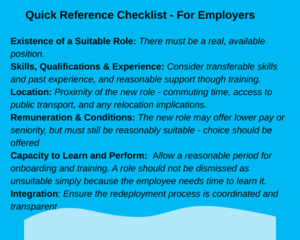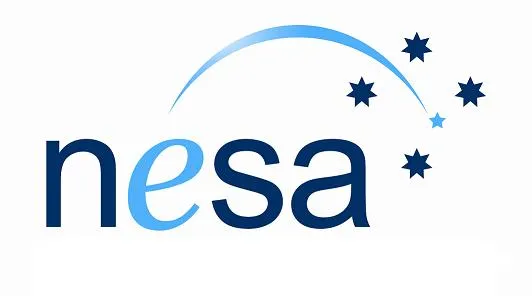
OCTOBER WORKSHOPS
Exiting Providers Workshop
Exiting Providers Workshop – Last week of October
WATCH THIS SPACE
Time and Date TBC
Don’t miss the Exiting Providers Workshop — a final opportunity to get last-minute guidance, support, and answers before your transition.
The NESA Inclusive Employment Australia Market Support Services
NESA is committed to supporting a smooth and supportive transition to the new Inclusive Employment Australia with a core focus on upholding the wellbeing, stability and financial security of our frontline workforce, and ensuring talent and knowledge is retained, to the extent reasonably possible, in our sector. Our people are at the heart of this transition.
NESA’s role is to ensure providers, their staff and participants are well supported through this transition with practical resources, expert guidance, and structured assistance tailored to each provider’s circumstances.
The Market Adjustment Support service provides an opportunity for you to share feedback about the transition in real time with DSS. Providers are encouraged to raise issues with NESA and identify processes and practice to improve transition experiences and opportunities.
MARKET ADJUSTMENT SUPPORT SERVICES:
NESA will support providers with:
Assistance with Workforce planning, contract finalisation, infrastructure, and contingency planning including
- One-on-one support for providers
- Access to business restructuring resources (eg IR, insurance, lease negotiation advice)
Facilitated introductions between impacted providers to build relationships at organisational and local levels to maximise access to, and opportunities for, ongoing employment for impacted staff with a provider that is right for their needs and aspirations. We will also facilitate networking and introductions among providers.
Outplacement-like services to support staff transitions
This will include guidance, supported by our industry partner.
Access to operational support and resources to help organisations source premises and locations including lease arrangements with essential flexibilities to align with their new footprint over the term of their Agreement.
Essential support over the first four months (November-February) including:
- Guidance on contract start-up and caseload engagement
- Ongoing certification support
Capacity building for providers unfamiliar with market share caseload models.
Assistance to develop comprehensive exit strategies to ensure a smooth and orderly transition and contract close out.
Connection to resources and mentors in addition to:
Networking Opportunities: Facilitating introductions and networking events to help new entrants connect with key stakeholders and peers to foster sharing of best practice and cross-sector collaboration
Startup Workshops: Conducting workshops focused on the essentials of starting up in the disability employment sector, including compliance, best practices, and operational strategies
Certifications: Support for planning and action is undertaken to obtain/update all necessary certifications to meet IEA and NPA requirements
Inclusive Employment Australia Market Adjustment Support (DESMAS)
To support the transition to new disability employment programs, the Department of Social Services (DSS) has appointed NESA to deliver the Market Adjustment Support to current and new providers of disability employment services starting November 2025.
Market Adjustment Support will assist providers and their workforce during the transition to the new Inclusive Employment Assistance and National Panel of Assessors (NPA) programs, which commence on 1 November 2025.
As part of this initiative, NESA will deliver targeted support to:
- Ensure disability employment workforce stability and seamless service continuity during the critical early stages of both programs’ establishment.
- Help impacted staff transition into new roles—whether within other employment services, NPA providers, or other suitable employment opportunities.
- Connect providers and their workforce with relevant local support programs and services.
- Offer additional services and resources to ensure a smooth and supported transition to the new programs.
- Support new entrants to the IEA and NPA programs by building their capability and understanding, enabling them to commence high-quality service delivery from commencement.


New Inclusive Employment Assistance Provider
Support and assistance for new organisations commencing delivery of the Inclusive Employment Australia or National Panel of Assessors services from 1 November 2025

HR FAQs
You can access reliable HR guidance from:
- Fair Work Ombudsman – for legal obligations around termination, redundancy, and employee rights.
Redundancy | Fair Work Commission.
Redeployment | Fair Work Commission.
- Safe Work Australia – for WHS obligations during organisational change.
Under the Fair Work Act 2009, employers in Australia must ensure that any redundancy is genuine, and that all legal and procedural obligations are met. This protects both the employer from legal risk and the employee from unfair dismissal.
For advice on your organisation’s specific circumstances and obligations, you should consult with Fair Work or your HR specialist.
Exiting the market involves several HR/IR responsibilities, including:
- Redundancy and redeployment: You must assess whether roles are genuinely redundant and follow Fair Work Act requirements for consultation, notice, and redundancy pay – Redundancy | Fair Work Commission.
Consider redeployment options within the organisation or associated entities – Redeployment | Fair Work Commission.
- Enterprise Agreements and Awards: Follow consultation obligations under applicable awards or enterprise agreements and ensure compliance with any applicable modern awards or enterprise agreements, especially around termination and redundancy provisions.
- Employee entitlements: Finalise accrued leave, superannuation, and other entitlements.
- Union engagement: If your workforce is unionised, engage early to manage expectations and ensure compliance with consultation obligations.
- Recordkeeping and compliance: Maintain accurate records of all employment decisions and communications.
- Notifications: If 15 or more employees are being made redundant, employers must notify authorities in writing before the redundancies take effect.
Before determining or finalising a redundancy, employers must:
- Develop and document the redeployment assessment process and communicate this to staff. This will include how staff can express interest and nominate for potential roles.
- Identify roles currently undergoing recruitment activities or likely future vacancies within the organisation or its associated entities.
- Identify the suitable alternative roles based on role, location etc.
The job must be suitable, in that the employee should have the skills and competence required to perform it to the required standard either immediately or within a reasonable period of retraining.
Other considerations may be relevant such as:
- the location of the job, and
- the level of remuneration.
- Discuss options with impacted staff in an open and transparent manner.
- Consider the employee’s skills, experience, location, and pay and capacity to when assessing suitability.
The Fair Work Commission has a range of resources to help employers facing redeployment of staff following a restructure or change of business/contract. Follow this link for information and consideration for discussion within your management team.
Redeployment | Fair Work Commission.

If an employer has other positions available, even at a lower level, that the redundant employee has the skills to perform, the employer should not presume that the employee will refuse the position.
An employee may well be prepared to consider a role with less responsibility and have no objection to the location of the role being different to the current one and accept less remuneration.
The option should be part of a discussion with the employee.
Under the Fair Work Act 2009, employers must ensure redundancies are genuine, meaning the role is no longer required and redeployment is not reasonably possible.
If a suitable role exists and is not offered, the redundancy may not be considered genuine.
Under the Fair Work Act 2009, a redundancy will not be considered genuine if it would have been reasonable in all the circumstance to redeploy the employee to another role within the employer’s business or an associated entity
This principle is grounded in the idea that termination should be a last resort, and employers must actively seek to retain employees where possible.
For advice on your organisation’s specific circumstances and obligations, you should consult with Fair Work or your HR specialist.
Using templates may help you to comply with the requirements more easily. The Fair Work Ombudsman has a range of template and resources to help make or respond to a notice.
Regular communication with employees is important during periods when a business is undergoing major workplace change. Your leadership and management team should consider the following:
- Early and transparent communication: Share information as soon as possible, even if all details aren’t finalised.
- Dedicated transition briefings: Hold team meetings to explain the process, timelines, and available supports.
- One-on-one check-ins: Offer private sessions for staff to ask questions and express concerns.
- Written FAQs and updates: Provide consistent messaging through internal newsletters or bulletins.
- Access to support services: Connect staff with counselling, career coaching, and outplacement services.
- Ensure genuine consultation: Be open and honest in discussion with staff as groups and individuals. If a question can’t be answered or issue is not yet finalised then share that and advise when more information can be provided.
- Communicate timeframes: During times of uncertainty, being clear on when staff can expect updates is as important as the information itself. When a timeframe is communicated – stick to it.
Staff may ask your HR department, their supervisor or others within your organisation any of the following questions:
- Will I lose my job? Or When will my role end?
- What support will I receive? Or Will there be counselling or emotional support?
- Can I transfer to another provider?
- What happens to my entitlements?
Have your own FAQs ready and update as more questions are asked. Staff will feel more consulted and acknowledged if they can see their employers is hearing and listening to their questions. Clear, honest empathetic answers is critical to maintaining trust and morale.
Staff will vary as to what services and supports they want based on individual circumstances.
Best practice includes offering:
- Providing the Redundancy Information Statement to affected staff.
- Counselling and wellbeing support through Employee Assistance Programs (EAPs).
- Placement services: career coaching, resume writing, interview preparation.
The NESA IEA Market Adjustment support team can offer staff access to range of resources and supports including connection across the IEA and NPA provider network to make moving to a new employer easier.
Yes, consultation is required. If employees are covered by a modern award or enterprise agreement that includes consultation provisions this typically involves:
- Notifying affected employees and their representatives.
- Providing relevant information about the changes.
- Discussing measures to mitigate adverse effects
New Entrant FAQs
Securing premises in four months may seem daunting but there are some strategies and practices to maximise lease negotiation for the new agreement.
NESA’s IEA Market Adjustment Support will help new entrants connect with providers who may be existing to assess options to transition leases and premises.
Provide impacted providers with instructions and support for business restructuring activities including but not limited to advice on Industrial relations issues, corporate facilities such as insurance advice and resizing.
The NESA IEA Market Adjustment Support team has extensive experience in government and service delivery who can work with you over the next 12 months to help you get started, implement and establish your services.
To assist New Entrants to the Market in establishing their presence and operations, specific support includes:
- Startup Workshops: Conducting workshops focused on the essentials of starting up in the disability employment sector, including compliance, best practices, and operational strategies
- Onboarding New Entrants to IEA and NPA: Providing additional support and continuous feedback to new entrants to the market to socialise them to the sector ensuring their successful integration and effective service delivery as quickly as possible upon commencement
Familiarisation with the requirements, expectations, and best practices of the sector, facilitate networking and collaboration opportunities to build relationships and access to expertise for guidance on specific challenges and opportunities.
Strategies for negotiating leases and other logistic services to ensure they provide flexibility over the life of the Agreement and particularly for transition and contractual compliance activities upon cessation of the Agreement.
- Mentorship Programs: On request, pairing new entrants with experienced mentors who can provide guidance and support during the initial stages
- Networking Opportunities: Facilitating introductions and networking events to help new entrants connect with key stakeholders and peers to foster sharing of best practice and cross-sector collaboration
Introductions: Facilitating introductions between impacted providers to build the relationships with relevant key contacts in the IEA and NPA providers.
“Outplacement like” services: Facilitating introductions between impacted providers to help them register their interest, connect and align their respective transition plans.
- Connection to Resources: Providing comprehensive overview of the range of available resources, including Learning Centre, Portals, and Local Jobs Coordinator and other government resources supporting employment services and NDIS
- Overview of Certifications and Performance frameworks: Familiarisation and support to understand certification requirements and the operations of the performance framework to maximise implementation and performance from 1 November 2025.
- Information Services: Comprehensive information service to provide timely and accurate updates.
- Skill Development Resources: Materials to help staff develop new skills relevant to their roles via the NESA Academy.
For advice on your organisation’s specific circumstances and obligations, you should consult with Fair Work or your HR specialist.
Exiting the market involves several HR/IR responsibilities, including:
- Redundancy and redeployment: You must assess whether roles are genuinely redundant and follow Fair Work Act requirements for consultation, notice, and redundancy pay – Redundancy | Fair Work Commission.
Consider redeployment options within the organisation or associated entities – Redeployment | Fair Work Commission.
- Enterprise Agreements and Awards: Follow consultation obligations under applicable awards or enterprise agreements and ensure compliance with any applicable modern awards or enterprise agreements, especially around termination and redundancy provisions.
- Employee entitlements: Finalise accrued leave, superannuation, and other entitlements.
- Union engagement: If your workforce is unionised, engage early to manage expectations and ensure compliance with consultation obligations.
- Recordkeeping and compliance: Maintain accurate records of all employment decisions and communications.
- Notifications: If 15 or more employees are being made redundant, employers must notify authorities in writing before the redundancies take effect.
NESA will provide intensive support to organisations new to the market during the First 4 months of the new Agreement period.
Support will focus on:
Agreement Commencement: Providing guidance on best practices strategies to help providers start up their Agreement successfully and engage and commence their caseload over November to February.
Contingency Plans: Providing suggestions and support on risk management, business continuity and contingency planning to address potential disruptions, or other environmental/weather events that typically occur November to February so essential services to vulnerable Australian’s can continue with minimal disruption.
Regular Check-Ins: Conducting regular check-ins with providers to monitor progress and address any logistical challenges promptly.
Certifications: Supporting as required to help providers remain on track to update or obtain all necessary certifications to meet IEA and NPA requirements.
Capacity building to operate in a managed market share context: Supporting providers less familiar with a market share caseload approach to review and adapt their operating model.
As part of the IEA Market Adjustment Support, NESA will facilitate introductions between impacted providers to help them connect and align their respective transition plans. This will be a critical service in the event there are new entrants to the market, new locations and particularly given the expanded NPA program.
NESA will support providers and staff in finding roles in location similar to their current as well as provide information on suggested recruitment models and processes to ensure quick and efficient operation.
As appropriate, NESA will be supported by our HR industry partner, on identifying and mapping translatable skills.
Workshops will be held for new entrants to explain the certifications required under IEA, strategies to effectively manage and approach certifications along with support and guidance for documentation.
Workshops will be held for new entrants to explain key expectations of the Agreement, working with DSS, the performance and contract management requirements in order to have the best possible start to the Agreement.
NESA can connect organisations to expert insurance partners to enable them to make informed choices based on their circumstances.
In addition to your own organisation induction training and corporate policies and culture, training and preparation of staff to commence the agreement on 1 November 2025 will need to cover a range of areas.
- Mandatory departmental modules required for access to systems and system training
- Agreement and Guidelines – awareness and understanding of compliance and agreement requirements
- Module identified by DSS and available through the Learning Centre
Transition Guidelines for DSS will provide more detail when published.
NESA IEA Market Adjustment team can also assist organisation’s develop an induction plan for onboarding and training staff.
Nesa Academy has a range non accredited modules addressing essential and core skills for consultants working in employment services and IEA/NPA.
Existing Providers FAQs
DSS has information about closing sites. Closing site will be covered in workshops with providers. However there are a couple of important aspects providers need to be aware under the Agreement including but not limited to:
- Records management (electronic and hard copy)
- Notifications to stakeholders
- Handling of IT equipment eg appropriate cleansing of drives etc and/or destruction of IT equipment if disposing
- Management of DES printed material materials
A checklist will be available as we proceed through the transition period and once guidelines are released.
As a provider exiting the DES program, you have several key contractual obligations to be aware of under the DES Deed and associated guidelines. This includes cooperating with DSS directions and timelines.
- Participant Handover: You are required to support the orderly transfer of all participant records, case notes, and relevant information to the new provider(s) to avoid disruption to services. This must be done in accordance with privacy and confidentiality obligations.
- Confidentiality and Records Management: You must continue to comply with confidentiality, privacy, and records management obligations, including secure storage or disposal of participant information.
- Asset and Information Return: Any government-funded assets or materials must be returned or disposed of as directed. You must also ensure that all DES-related data and documentation are securely handled and returned or destroyed in line with DSS requirements.
- Final Reporting and Claims: All outstanding claims for payment must be submitted within the specified timeframes. You must also provide any final reports or data required by DSS, including financial statements if requested.
- Debts and Overpayments: Any identified overpayments or debts to the Commonwealth must be repaid. DSS may offset these against any final payments due.
- Compliance and Audit: You remain subject to audit and compliance checks even after your exit. This includes the possibility of post-exit reviews of your service delivery, financial claims, and participant outcomes.
- Surviving Clauses: Certain clauses of the Deed (e.g., confidentiality, indemnity, and audit rights) survive the termination or expiry of the contract and remain enforceable.
Transition guidelines issued by DSS covers all the requirements and obligations of providers during transition.
Yes. Under the current DES Deed and the recent extension announced by the Department of Social Services (DSS), providers are contractually obligated to remain fully operational and continue delivering services through to 31 October 2025
This means you are expected to:
- Remain open and accessibleto participants during your contracted hours.
- Continue delivering all DES servicesin line with the Deed and Guidelines, including servicing participants, managing claims, and maintaining compliance.
- Support a smooth transitionfor participants and staff as the program shifts to the new Inclusive Employment Australia model starting 1 November 2025.
- Meet all reporting, data, and administrative obligationsup to and including the final day of the contract.
If due to unforeseen circumstances, you may need to exit earlier than 31 October 2025, you will need to notify DSS and discuss and coordinate an approach approved by DSS to ensure a compliant and orderly transition of participants and services.
The NESA IEA Market Adjustment Support team has extensive experience in government and service delivery who can work with, and support, you over the next few months. Specific support includes:
- “Outplacement like” services: Facilitating introductions between impacted providers to help them register their interest, connect and align their respective transition plans.
- Exit Workshops: Conducting workshops focused on the essentials of closing contract, records management and site(s) closure to ensure compliance with the Agreement and relevant legislation and guidelines.
- Information Services: Comprehensive information service to provide timely and accurate updates.
- Skill Development Resources: Materials to help staff develop new skills relevant to their new roles via the NESA Academy.
DSS Transition Support Coming Soon
Contact
Got a question? Don’t hesitate to get in touch with us — we’re here to help!
